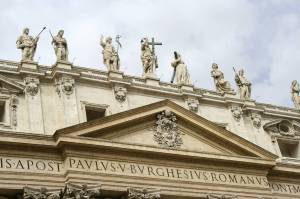
With one particular horse, called Nugget, he embraces. The animal digs its sweaty brow into his cheek, and they stand in the dark for an hour — like a necking couple.
And of all nonsensical things — I keep thinking about the horse! Not the boy: the horse, and what it may be trying to do. I keep seeing the huge head, kissing him with its chained mouth. Nudging through the metal some desire absolutely irrelevant to filling its belly or propagating its own kind.
What desire could that be? Not to stay a horse any longer? Not to remain reined up forever in those particular genetic strings?
Is it possible, at certain moments we cannot imagine, a horse can add its sufferings together — the non-stop jerks and jabs that are its daily life — and turn them into grief?
What use is grief to a horse?
These are the opening lines of Peter Shaffer‘s play Equus, spoken by psychiatrist, Martin Dysart. Dysart is treating, and trying to understand, a disturbed young man, Alan Strang, who blinded six horses.
The annual three-day horse racing event held at Aintree here in the UK has just finished. During the Grand National race, two horses died. Ornais with a broken neck, and Dooney’s Gate with a broken back. A total of 33 horses have died at the Aintree event since 2000.
Ornais was hurriedly covered with a green tarpaulin as the race continued around his dead body.
A BBC commentator referred to Ornais’s corpse as ‘an obstacle’ on the racecourse. The Oxford Dictionary of English defines obstacle as ‘a thing that blocks one’s way or prevents or hinders progress’.
The way they give themselves to us. That was it, too. They could stamp us into bits anytime they wanted, and they don’t. They just let themselves be turned on a string all day, absolutely humble. They give us all their strength, and we just give them stripes. They’ll run forever. They’ll gallop till they die, they will… if we don’t say ‘stop’.
Alan Strang, Equus





Oh, that is so sad. So unnecessary.
(I do deeply love that play. It really works as a play, and not at all as a film.)
LikeLike
Hi, Mikey
Yes, it is. Interestingly, Ornais’s owner and trainer have rejected criticisms of the Grand National, but their reasoning conveniently overlooks the fact that humans have both free will and the ability to consciously analyse foreseeable risks before deciding on a course of action. This is from the Daily Mirror newspaper:
Ornais’s owner Andy Stewart said: “He was a lovely horse and when you lose them, it is very sad. I think this whole hyped-up situation regarding the Grand National is totally wrong. My son snowboarded in France and, unfortunately, he had an accident and he’ll never walk again. Why don’t we just get on with it and enjoy the sport?” Ornais’s trainer Paul Nicholls added: “It doesn’t matter how safe you make the M1, the M4, the M5 or whatever, you’re always going to have accidents.”
I don’t think I’ve seen the film version of Equus. Shaffer, Richard Burton and Peter Firth were all nominated for an Oscar, but Halliwell’s says that the film is overlong and “makes the fatal mistake of showing the tragic events realistically instead of stylistically as was done on the stage”.
LikeLike
“After the race, another BBC sports bod, Clare Balding, referred to two ‘equine fatalities’. Horse deaths, then.”
Well, yeah, but the important words there are surely “after the race”. Different ball-game to during.
Just sayin’
LikeLike
Hi Deborah,
In fairness to the commentator, whoever it was, Aintree is a huge place, and all the commentators can see of the outfield is what you or I – should we be inclined – see on TV – exactly the same picture. The only “eyes-on” view is of the start and finish.
It’s conceivable that he had no idea what the “obstacle” was. Did he? I have no idea.
LikeLike
Hi, Ron
I don’t think it’s possible that the commentator would not have known what the ‘obstacle’ was. And I don’t think the BBC has made any such claim in its defence. The BBC said it was: “…aware of the unfortunate events of the two fatalities” and that “during the race and the re-run this was covered with as much sensitivity as possible”.
After the race, another BBC sports bod, Clare Balding, referred to two ‘equine fatalities’. Horse deaths, then.
LikeLike